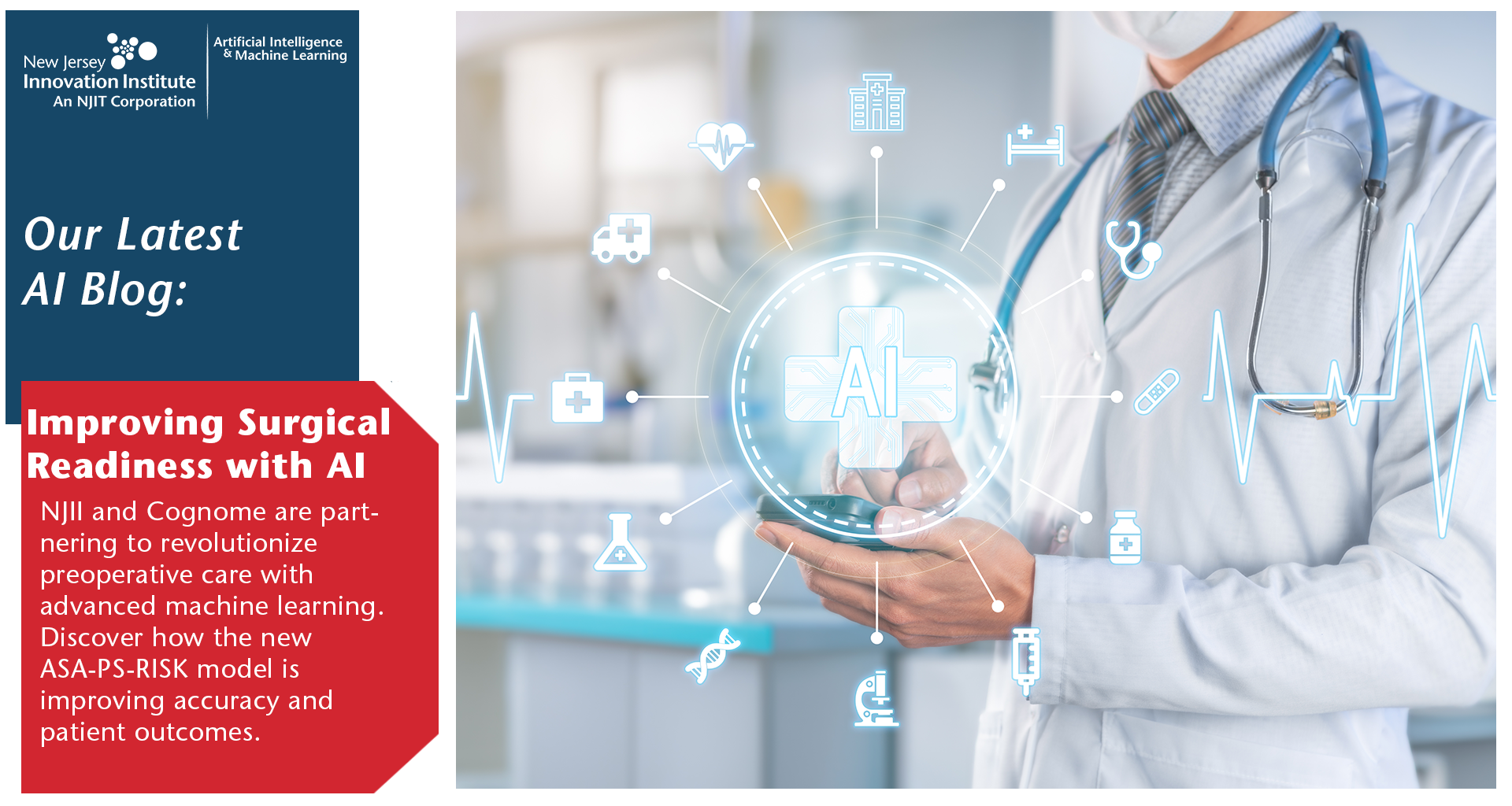The New Jersey Innovation Institute (NJII) is collaborating with Cognome to deliver advanced machine learning models to health providers, with the goal of improving surgical readiness and patient outcomes. A key focus of this partnership is the Risk Score to Predict Readiness for Surgery (ASA-PS-RISK), which aims to address the limitations of the traditional American Society of Anesthesiologists Physical Status (ASA-PS) classification system.
The Challenge with ASA-PS
Established in 1941, the ASA-PS classification system is a vital tool used by anesthesiologists to evaluate a patient’s pre-anesthesia medical comorbidities. However, its reliance on subjective human judgment can lead to variability in assessments among healthcare professionals, resulting in inconsistent patient classifications. This inconsistency can negatively impact healthcare resource allocation and preoperative planning, potentially leading to unnecessary testing, delays, or cancellations on the day of surgery.
Given these challenges, there is a clear need for a more reliable method to assign ASA-PS classifications, which can enhance the accuracy and effectiveness of perioperative risk management.
The Solution: Machine Learning Model
Cognome has developed a machine learning physical status model that utilizes preoperative data to improve the early identification of high-risk patients. This approach standardizes preoperative evaluations, ultimately aiming to enhance outcomes for patients undergoing ambulatory surgery.
The model was created using a supervised random forest algorithm with 35 preoperatively available variables, demonstrating strong predictive ability for 30-day mortality, postoperative ICU admission, and adverse discharge. The ML-PS model can be automatically extracted from electronic health records (EHR), allowing for a more streamlined and standardized preoperative evaluation process.
Enhancing the Patient Experience
In healthcare, “The Patient Experience” encompasses all interactions a patient has with the healthcare system, from initial contact through treatment and follow-up care. By improving the accuracy of surgical risk assessments, the Cognome model directly contributes to a better patient experience.
When patients receive more accurate risk classifications, they can engage in informed discussions with their healthcare providers about their treatment options. This transparency fosters trust and can lead to higher satisfaction levels, as patients feel more involved in their care decisions. Moreover, minimizing unnecessary tests and delays can alleviate anxiety and enhance overall satisfaction with the surgical process.
Promising Outcomes
Results from a comprehensive study demonstrate the effectiveness of the ML-PS model. The agreement between the anesthesiologist-assigned ASA-PS and the machine learning model was found to be 57.2%. Notably, the ML-PS model more frequently categorized patients into extreme ASA-PS categories (I and IV), while assigning fewer patients to the intermediate categories (II and III) – a difference that was statistically significant (p<0.01).
Both classification systems showed strong predictive values for 30-day mortality, as well as good predictive capabilities for postoperative ICU admissions and adverse discharges. Among 3,594 patients who experienced mortality within 30 days post-surgery, the ML-PS model reclassified 35.6% into a higher risk category compared to the anesthesiologists’ assessments. For patients with multiple comorbidities, the traditional ASA-PS classification had better predictive accuracy.
Focus on Perioperative Care
This partnership between NJII and Cognome aims to enhance the perioperative service line, benefiting healthcare providers and patients. By integrating Cognome’s machine learning models into clinical practice, health providers can expect improved accuracy in patient assessments and better resource allocation.
NJII is committed to driving innovation in healthcare by adopting advanced technologies that improve patient care. The collaboration with Cognome represents a significant step toward enhancing surgical readiness, patient safety, and the overall patient experience in the healthcare sector.
For more detailed outcomes, you can refer to the published study on ScienceDirect: Development and validation of a machine learning ASA-score.
